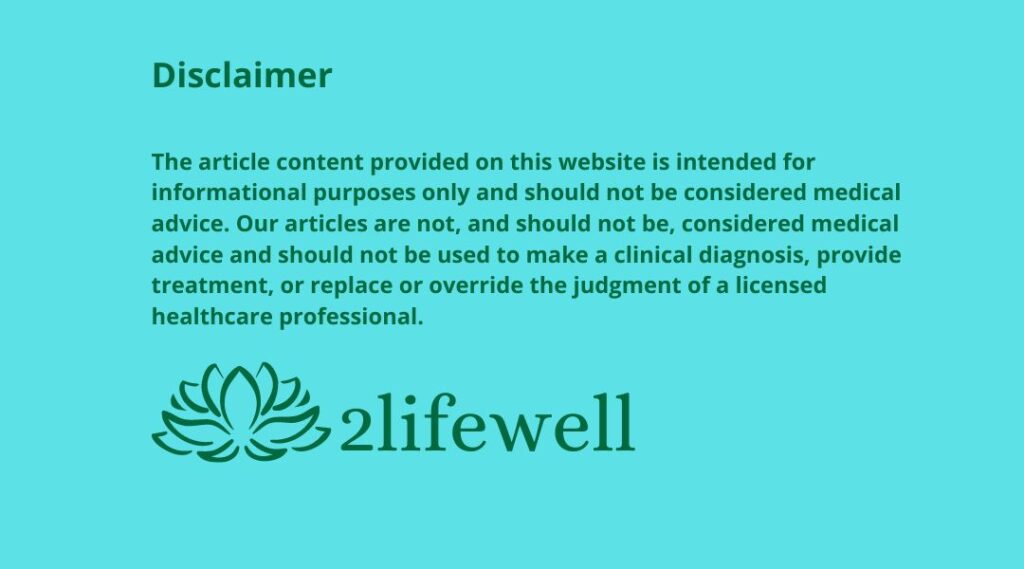
In today’s fast-paced and ever-changing world, the ability to stay committed to our goals and aspirations is more important than ever. Whether it’s cultivating a mindfulness practice, nurturing meaningful relationships, or pursuing professional success, commitment serves as the cornerstone of personal growth and fulfillment. In this article, we will delve into the power of commitment in the pursuit of mental well-being and explore practical strategies for staying firm in our dedication to leading a fulfilling life.
Understanding the Power of Commitment
Commitment is a potent force that propels us toward our goals and aspirations. It involves dedicating ourselves wholeheartedly to a course of action, regardless of obstacles or challenges that may arise. By understanding the power of commitment, we recognize that it serves as a catalyst for personal growth and fulfillment.
Commitment instills a sense of purpose and direction in our lives, motivating us to persevere in the face of adversity and stay true to our values and aspirations. Whether it’s committing to a new skill, a relationship, or a personal development journey, embracing commitment empowers us to overcome obstacles and achieve our highest potential.
TIP: Cultivate commitment by setting clear intentions and goals that align with your values and aspirations. Stay focused on your objectives, and remain steadfast in your pursuit of excellence. Remember that commitment is a journey, not a destination, and celebrate your progress along the way.
Setting Clear Intentions and Goals
Setting clear intentions and goals is essential for cultivating a sense of purpose and direction in our lives. Intentions are the guiding principles that shape our thoughts, actions, and behaviors, while goals provide tangible milestones to strive toward.
By clarifying our intentions and setting SMART (Specific, Measurable, Achievable, Relevant, Time-bound) goals, we create a roadmap for success and empower ourselves to take purposeful action toward our desired outcomes. Setting clear intentions and goals allows us to focus our energy and attention on what truly matters, enabling us to align our actions with our values and aspirations.
TIP: Start by reflecting on your values, passions, and long-term aspirations. Identify specific areas of your life where you’d like to see growth or improvement, and set SMART goals that reflect those aspirations. Break down larger goals into smaller, manageable tasks, and track your progress regularly to stay motivated and accountable.
Cultivating Discipline and Consistency
Discipline and consistency are the cornerstones of success in any endeavor. They require a steadfast commitment to our goals and a willingness to take consistent action, even when faced with challenges or setbacks.
Cultivating discipline involves cultivating self-control, resilience, and a growth mindset, allowing us to stay focused on our objectives and persevere in the pursuit of excellence. Consistency, on the other hand, involves showing up day in and day out, putting in the necessary work and effort to make steady progress toward our goals.
By cultivating discipline and consistency, we harness the power of habit and routine to create lasting positive change in our lives.
TIP: Develop daily rituals and routines that support your goals and aspirations. Start small and gradually build momentum over time, focusing on creating sustainable habits that align with your values and priorities. Celebrate your successes along the way, and remember that every small step forward brings you closer to your desired outcomes.
Overcoming Fear of Failure
Fear of failure can often hold us back from fully committing to our goals and aspirations. However, failure is an inevitable part of the journey toward success and personal growth. Embracing failure as a natural and necessary aspect of learning allows us to release the paralyzing grip of fear and take bold action toward our dreams. By reframing failure as an opportunity for growth and resilience, we can cultivate a mindset that thrives on challenges and setbacks.
Tip: Challenge yourself to reframe past failures as valuable learning experiences. Identify the lessons you’ve gained from these setbacks and use them to fuel your future endeavors with renewed confidence and determination.
Seeking Support and Accountability
Seeking support and accountability from others can significantly enhance our commitment to mental fulfillment. Sharing our goals and aspirations with trusted friends, family members, or mentors provides encouragement, guidance, and motivation along the journey. Engaging in regular check-ins or accountability partnerships holds us accountable for our actions and provides valuable feedback and support when faced with challenges or setbacks.
Tip: Reach out to someone you trust and admire who has demonstrated commitment to their own mental well-being. Ask them to serve as an accountability partner and schedule regular check-ins to discuss progress, challenges, and victories.
Practicing Self-Reflection and Adjustment
Practicing self-reflection allows us to regularly evaluate our progress and make necessary adjustments to stay aligned with our goals and priorities. Taking time to pause and assess what’s working well and what could be improved enables us to course-correct and realign our actions with our intentions.
Embracing a growth mindset fosters an attitude of curiosity and openness to feedback, facilitating continuous learning and adaptation along the journey toward mental fulfillment.
Tip: Set aside dedicated time each week for self-reflection. Ask yourself probing questions about your progress, challenges, and areas for improvement. Use this insight to adjust your approach and refine your strategies for success.
Embracing Patience and Persistence
Embracing patience and persistence is essential for staying committed to our long-term goals and aspirations. Rome wasn’t built in a day, and meaningful change takes time to unfold. Cultivating patience allows us to trust in the process and remain steadfast in our dedication, even when progress feels slow or setbacks occur. Persistence involves staying the course, despite obstacles or adversity, and maintaining faith in our ability to overcome challenges and achieve our dreams.
Tip: Practice mindfulness and self-compassion during moments of impatience or frustration. Remind yourself that progress is not always linear and that each step forward, no matter how small, brings you closer to your goals.
Celebrating Milestones and Progress

Celebrating milestones and progress is essential for maintaining motivation and reinforcing commitment to our goals. Acknowledging and celebrating even the smallest victories along the way boosts morale and provides encouragement to keep pushing forward.
Whether it’s reaching a major milestone or making progress toward a long-term goal, taking time to celebrate achievements fuels our commitment and inspires continued effort and dedication.
Tip: Create a system for tracking and celebrating your progress, such as a milestone journal or a rewards system. Treat yourself to small rewards or celebrate with friends and loved ones whenever you achieve a significant milestone.
Cultivating Resilience in the Face of Challenges
Cultivating resilience is key to sustaining commitment in the face of challenges and setbacks. Resilience enables us to bounce back from adversity, adapt to change, and persevere in the pursuit of our goals. Building resilience involves developing coping skills, fostering a positive mindset, and cultivating social support networks.
By embracing challenges as opportunities for growth and learning, we strengthen our resilience and fortify our commitment to mental well-being and personal growth.
Tip: Practice reframing challenges as opportunities for growth and resilience. When faced with adversity, ask yourself, “What can I learn from this experience?” and “How can I grow stronger as a result?”
Embracing Flexibility and Adaptability
Embracing flexibility and adaptability is essential for staying committed to our goals in the face of changing circumstances. Life is unpredictable, and unexpected challenges or opportunities may arise along the way. Being flexible allows us to adjust our plans and strategies as needed while staying true to our overarching goals and values.
By embracing change and remaining open to new possibilities, we can navigate uncertainty with confidence and resilience.
Tip: Practice mindfulness and presence to stay grounded in the present moment and adapt to changing circumstances with grace and ease. Trust in your ability to navigate challenges and seize opportunities as they arise.
Building a Supportive Environment

Building a supportive environment is crucial for sustaining commitment to mental well-being and personal growth. Surrounding ourselves with supportive friends, family members, and mentors provides encouragement, accountability, and guidance along the journey.
Creating a supportive work environment, cultivating positive relationships, and seeking out communities of like-minded individuals can also bolster our commitment and resilience. By fostering a supportive network of allies and advocates, we create a fertile ground for growth and success and happiness.
Tip: Take inventory of your social support network and identify individuals who uplift and encourage you. Invest time and effort in nurturing these relationships and seek out new connections that align with your goals and values.
Practicing Self-Care and Nurturing Well-Being
Practicing self-care and nurturing our well-being is essential for sustaining commitment and resilience over the long term. Prioritizing self-care activities such as exercise, relaxation, and hobbies replenishes our physical, mental, and emotional energy reserves, allowing us to show up fully and authentically in pursuit of our goals.
Making time for self-care demonstrates a commitment to our own well-being and sends a powerful message that we are worthy of love, care, and attention.
Tip: Create a self-care routine that includes activities that nourish your body, mind, and spirit. Schedule regular self-care breaks throughout your day and make them non-negotiable, just like any other commitment.
Seeking Growth and Continuous Learning
Seeking growth and continuous learning is essential for sustaining commitment and vitality in life. Embracing a growth mindset involves viewing challenges as opportunities for learning and development, rather than obstacles to be avoided.
Engaging in lifelong learning, seeking out new experiences, and pushing ourselves outside of our comfort zones fosters personal growth and resilience. By embracing a mindset of curiosity and exploration, we can unlock our full potential and lead lives of purpose and fulfillment.
Tip: Challenge yourself to step outside of your comfort zone and try something new each week. Whether it’s learning a new skill, exploring a new hobby, or taking a class, embrace opportunities for growth and self-discovery.
Practicing Mindfulness in Commitment
Practicing mindfulness can greatly enhance our ability to stay committed to our goals and aspirations. Mindfulness involves being fully present and aware in the present moment, without judgment or attachment to outcomes.
By cultivating mindfulness, we develop greater clarity, focus, and resilience, allowing us to stay centered and grounded in the face of challenges. Integrating mindfulness practices such as meditation, deep breathing, or mindful movement into our daily routine can help us maintain a sense of calm and balance as we navigate the ups and downs of our commitment journey.
Tip: Incorporate short mindfulness practices into your daily routine, such as taking a few minutes to focus on your breath or practicing mindful walking during breaks. These moments of mindfulness can help you stay centered and present, even during busy or stressful times.
Fostering Connection and Collaboration
Fostering connection and collaboration can amplify our commitment and resilience by leveraging the power of community and shared purpose. Engaging with like-minded individuals who share similar goals and values provides support, accountability, and inspiration along the journey.
Collaborating with others allows us to pool our resources, talents, and strengths to achieve collective goals that may be beyond our reach alone. By fostering connection and collaboration, we tap into a wellspring of shared wisdom, encouragement, and motivation that fuels our commitment and propels us toward greater success and fulfillment.
Tip: Seek out opportunities to connect with others who share your commitment to mental well-being and personal growth. Join community groups, attend workshops or events, or participate in online forums or support groups where you can share experiences, resources, and insights with like-minded individuals.
In conclusion, practicing commitment is a powerful catalyst for achieving mental fulfillment and personal growth. By understanding the power of commitment, setting clear intentions and goals, cultivating discipline and resilience, and embracing flexibility and adaptability, we can stay firm in our dedication to leading lives of purpose and fulfillment.
Each step along the journey requires courage, perseverance, and resilience, but the rewards of living a committed life are immeasurable. As we embrace the power of commitment, we unlock new possibilities for happiness, fulfillment, and lasting success in all areas of life.
Books:
- “The How of Happiness: A New Approach to Getting the Life You Want” – Sonja Lyubomirsky- https://amzn.to/3MHHMRI
- Lyubomirsky presents evidence-based strategies for increasing happiness and promoting a more fulfilling life, based on his research in positive psychology.
- “Happiness: A Guide to Developing Life’s Most Important Skill” – Matthieu Ricard –https://amzn.to/3ATk0PW
- Ricard, a Buddhist monk and scientist, offers insights into how to cultivate lasting happiness through contemplative and transformative practices.
- “Stumbling on Happiness” – Daniel Gilbert –https://amzn.to/4e9LgIq
- Gilbert explores why we’re so bad at predicting what will make us happy and offers insights into how to better understand happiness and pursue a more fulfilling life.
- “Flow: The Psychology of Optimal Experience” – Mihaly Csikszentmihalyi- https://amzn.to/3AYIB65
- Csikszentmihalyi explores the concept of “flow”, a state of total absorption in an activity, and how to find meaning and satisfaction in our everyday lives.
- “The Art of Happiness” – Dalai Lama –https://amzn.to/47lAEUw
- The Dalai Lama shares his teachings on how to cultivate genuine happiness through a compassionate and altruistic mind, thus promoting a deeper sense of fulfillment.
Scientific articles:
- “Positive Psychology Progress: Empirical Validation of Interventions” – Sin & Lyubomirsky (2009)
- This article reviews interventions based on positive psychology, offering insights into practices that promote happiness and a sense of fulfillment in life.
- “The Pursuit of Happiness: Time, Money, and Social Connection” – Dunn et al. (2008)
- This research examines how different factors, such as time, money, and social connections, affect happiness and personal fulfillment.
- “Positive Affect and the Complex Dynamics of Human Flourishing” – Fredrickson (2013)
- Fredrickson explores the effects of positive affect in promoting human flourishing, offering insights into how to cultivate positive emotions for a more fulfilling life.
- “The Benefits of Frequent Positive Affect: Does Happiness Lead to Success?” – Lyubomirsky et al. (2005)
- This study examines the benefits of positive affect for success and well-being, highlighting how cultivating happiness can promote a deeper sense of fulfillment.
- “The Science of Happiness: A Study of Positive Psychology” – Seligman & Csikszentmihalyi (2000)
- This article presents the science of happiness, highlighting key concepts and discoveries from positive psychology and their impact on human fulfillment and well-being.
Book Chapters:
- “The Oxford Handbook of Happiness” – Chapter on happiness practices by Susan Folkman (2014)-https://amzn.to/47tZKkk
- Offers a comprehensive look at practices that promote happiness and fulfillment, based on recent research in positive psychology.
- “The Handbook of Well-being” – Chapter on the science and practice of happiness by Ed Diener & Robert Biswas-Diener (2018) – https://amzn.to/4gySPKT
- Explores the science of happiness and offers insights into practices that promote a deeper sense of fulfillment and well-being in everyday life.

